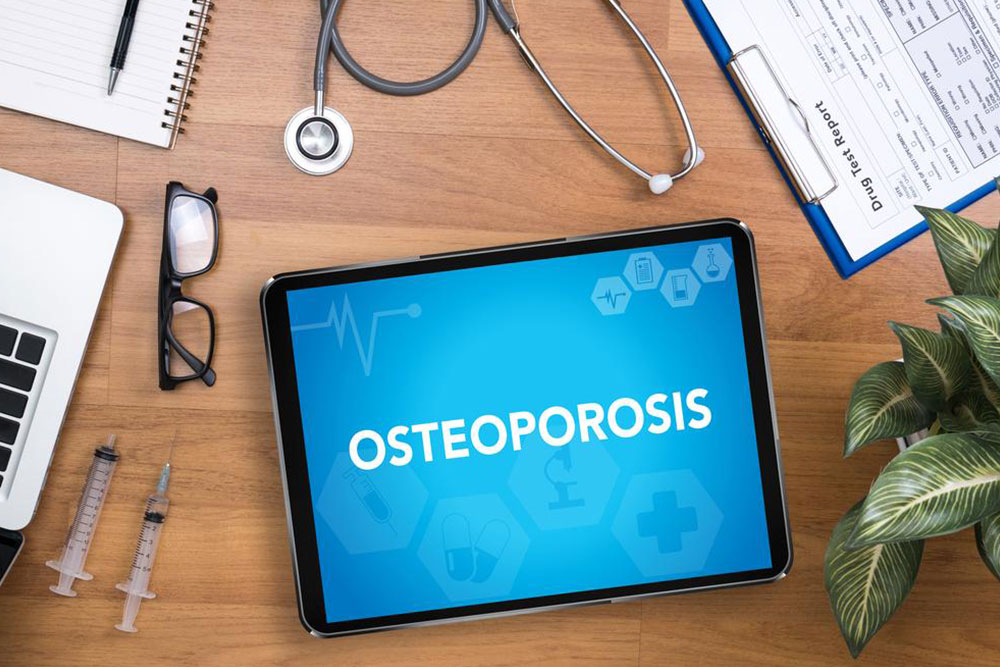Effective Natural Approaches to Enhance Bone Density and Strength
Discover effective natural strategies to enhance bone density and prevent osteoporosis. This comprehensive guide emphasizes dietary tips, exercise routines, vitamin intake, and lifestyle habits to strengthen bones and maintain skeletal health naturally. Suitable for individuals at risk or experiencing early signs of bone loss, these natural methods empower you to take control of your bone health through sustainable lifestyle choices.

Comprehensive Natural Strategies to Boost Bone Health and Prevent Osteoporosis
Osteoporosis, often called the silent disease, leads to bones becoming fragile, porous, and prone to fractures. This condition significantly impacts quality of life by increasing the risk of fractures even from minor stresses such as coughing, bending, or simple falls. As the global population ages, the prevalence of osteoporosis is rising, making prevention and management more important than ever. Although there is currently no complete cure for osteoporosis, adopting certain lifestyle changes, nutritional strategies, and natural health practices can substantially improve bone strength, reduce deterioration, and enhance overall skeletal health.
Prioritize Calcium-Rich Nutrition
Calcium is a fundamental mineral vital for maintaining strong and dense bones. A deficiency can accelerate bone loss, particularly in postmenopausal women and older adults. Incorporating a variety of calcium-rich foods into daily meals—such as dairy products like milk, cheese, and yogurt; leafy green vegetables like kale and collard greens; fortified plant-based milks; nuts; seeds; and fish like salmon and sardines with edible bones—ensures adequate calcium intake. For those with dietary restrictions or absorption issues, calcium supplements might be recommended by healthcare professionals. Consistent calcium consumption plays a key role in preserving bone mineral density and preventing osteoporosis progression.
Incorporate Regular Weight-Bearing and Muscle-Strengthening Exercise
Physical activity is essential for stimulating bone formation and maintaining bone mass. Weight-bearing exercises like brisk walking, jogging, stair climbing, dancing, and hiking actively stimulate bone tissue, encouraging mineralization. Resistance training, including resistance bands, weightlifting, or bodyweight exercises such as squats and lunges, help build muscle strength, which in turn supports bone health. For individuals with osteoporosis or at risk, a tailored exercise program supervised by a physical therapist or healthcare provider can optimize benefits while minimizing injury risk. Staying active not only enhances bone density but also improves balance, coordination, and overall fitness.
Eat Foods Rich in Key Vitamins
Vitamin D is crucial for calcium absorption in the intestines and helps regulate calcium and phosphate levels in the blood, essential for healthy bones. Sun exposure is a natural way to boost vitamin D synthesis; however, dietary sources include fatty fish (like salmon and mackerel), fortified foods, and egg yolks. Vitamin K2, found in fermented foods such as natto, sauerkraut, and certain cheeses, facilitates the binding of calcium to the bone matrix, preventing mineral loss. A balanced diet incorporating these vitamins supports optimal bone remodeling and strength. For those with deficiencies, supplements may be prescribed by healthcare professionals.
Avoid Sugary and Carbonated Beverages
Many fizzy drinks contain phosphoric acid, which can interfere with calcium metabolism and weaken bone structure over time. Excessive consumption of sodas and sugary drinks has been linked to decreased bone density, especially when these beverages displace more nutritious options. Reducing or eliminating soda intake helps maintain a more balanced pH in the body and preserves bone mineral content. Choosing healthier options like plain water, herbal teas, or flavored water without added sugars supports better hydration and bone health.
Limit Refined Sugar and Processed Foods
High sugar intake contributes to weight gain and inflammation, both of which negatively impact bone health. Excessive consumption of sweets, candies, pastries, and sugary beverages can lead to decreased bone mineral density and increased fracture risk. Emphasizing a diet rich in whole foods, fresh vegetables, fruits, lean proteins, and healthy fats provides essential nutrients for bones, such as magnesium, zinc, and vitamin C. Additionally, maintaining a healthy weight through balanced nutrition reduces strain on the skeletal system. Lifestyle modifications like avoiding fad diets and processed foods are integral to long-term bone health management.
Other important factors for bone health include maintaining adequate protein intake, avoiding excessive caffeine and alcohol, and not smoking. Ensuring sufficient sleep and stress management also contribute to improved bone metabolism. In advanced cases of osteoporosis, medical treatments like bisphosphonates or hormone therapy may be necessary, but these should complement, not replace, natural health strategies. By adopting these comprehensive and natural approaches, individuals can effectively support their bone health, reduce fracture risk, and enjoy better quality of life well into old age.





